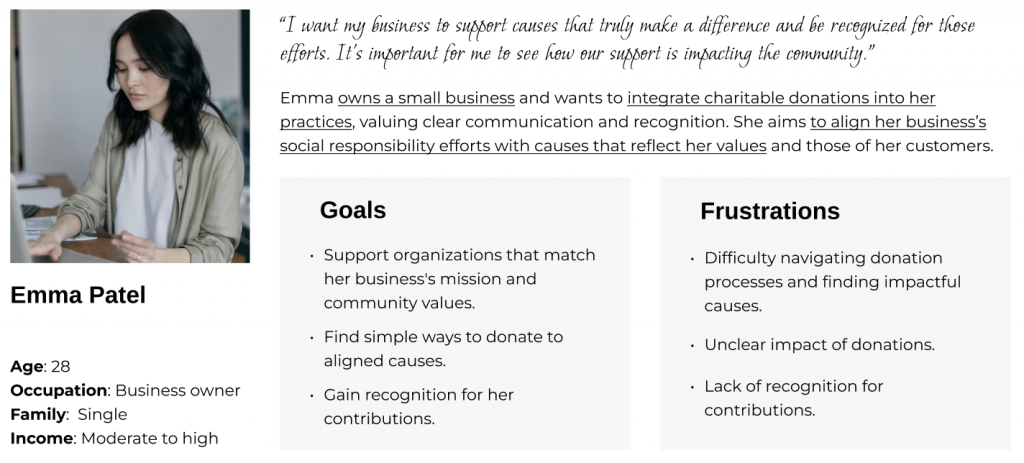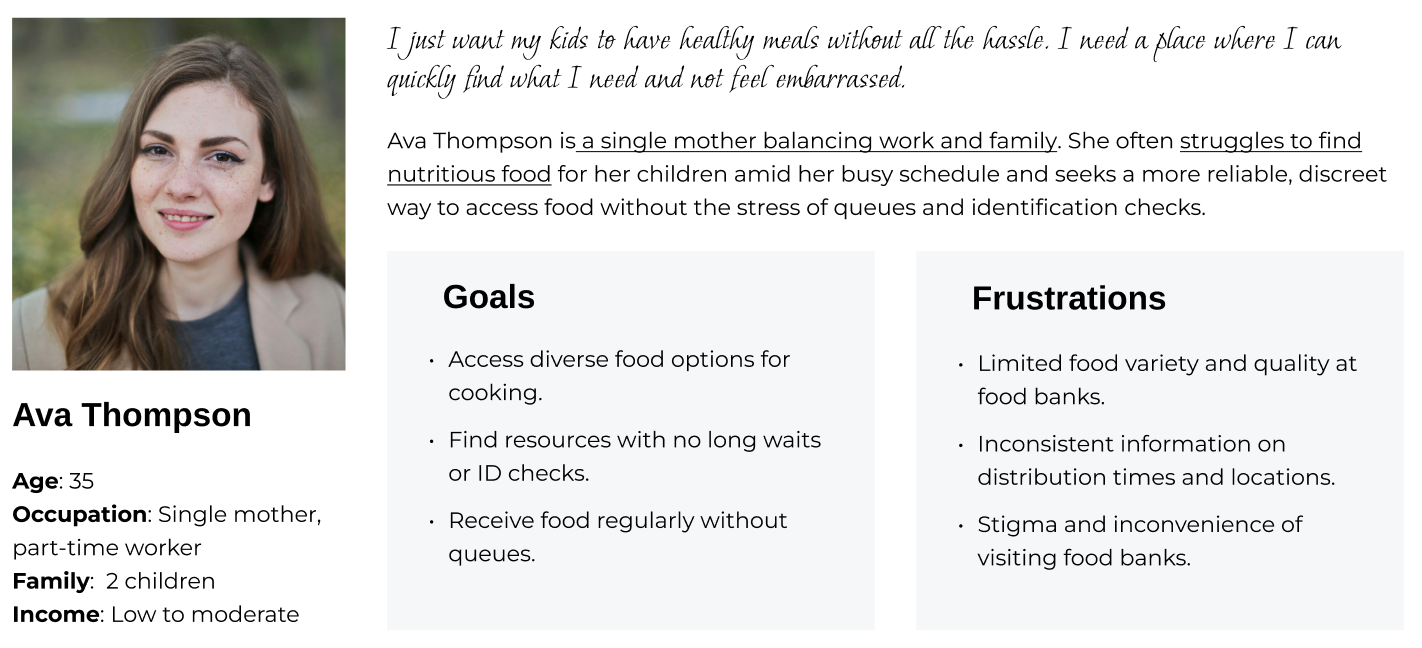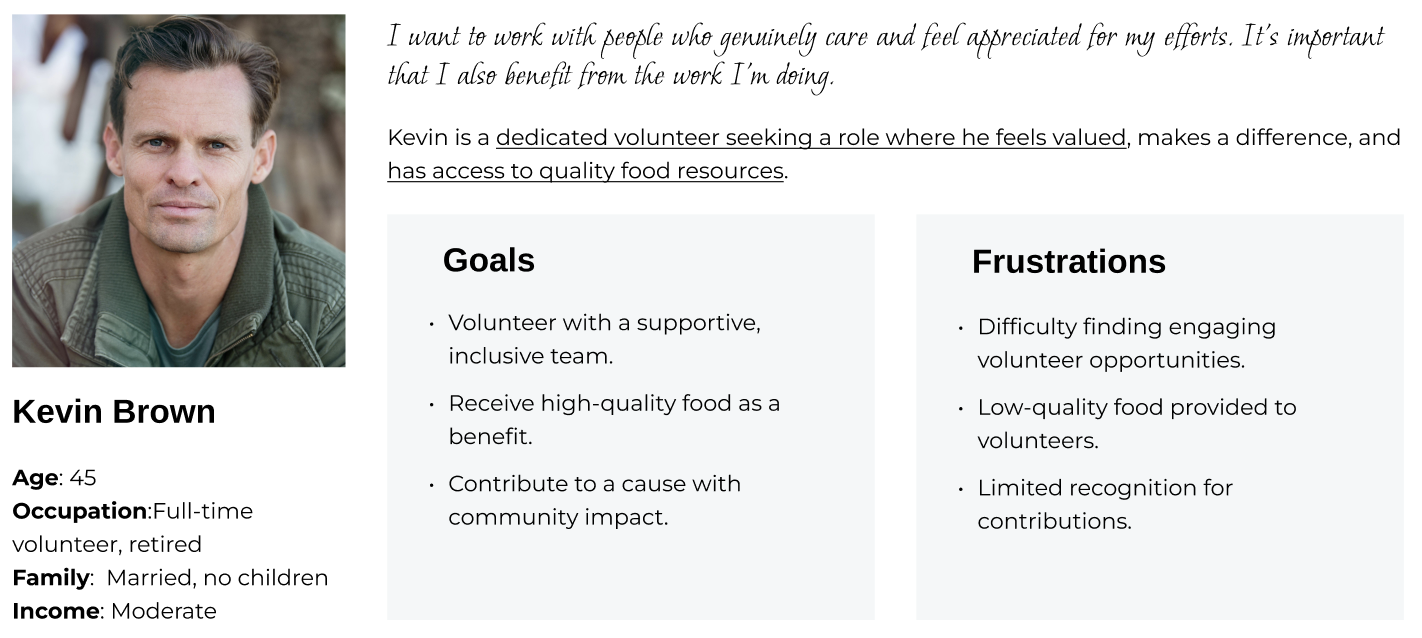BL’s Little Free Pantries
My Story with BL's Little Free Pantries
BL’s Little Free Pantries is volunteer-driven organization provides free food, clothing, and essential items to those in need. Many struggled to find clear information about food distribution or ways to volunteer, donate, or partner, overwhelming leadership with repetitive messages. Guided by BL’s team, I designed and developed a user-friendly WordPress site to centralize information, streamline donations, and highlight partnerships, easing the team’s workload.
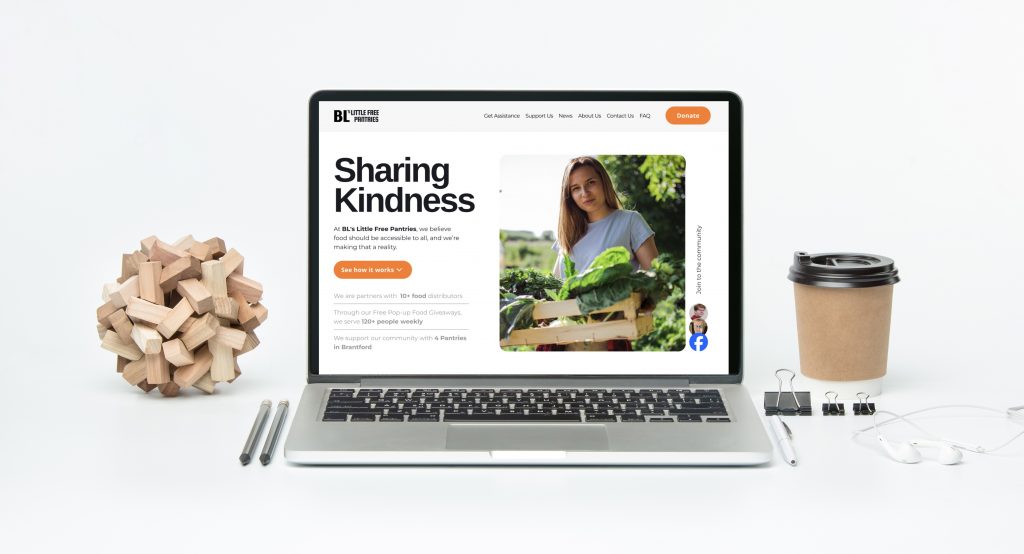
Project Overview
Key Contributions
- Conducted research on user needs and organizational challenges.
- Created wireframes and prototypes for the website.
- Designed a responsive and accessible user interface.
- Built the website on WordPress, ensuring scalability and ease of use for non-technical team members.
Team: BL’s Leadership Team
Role: UX/UI Designer, Developer and Content Creator
Tools: Figma, WordPress
Release: 12/2024
Understanding the user
The idea for BL’s Little Free Pantries website stemmed from the need to address communication gaps and streamline processes for different types of users. Through user segment analysis, we learned that our community consists of a diverse age range, from young adults to seniors. We identified three key user groups: individuals seeking food assistance, volunteers, and sponsors. Each group had distinct needs and challenges, requiring a tailored approach to design and content.
User’s Goals
- Food recipients prioritized quick and easy access to clear information about distribution times, locations, and guidelines.
- Volunteers needed straightforward ways to learn about opportunities to help and the benefits of their contribution
- Sponsors/partners valued visibility and acknowledgment of their support, as well as transparency in how their contributions made an impact.
I identified pain points, some of which were common across all groups, while others were unique to each one.
Pain Points
To address these unique needs, I developed three personas representing each user group, which guided our design and content decisions.
Lack of Clear Information
- Food recipients couldn’t find clear distribution info.
- Volunteers lacked guidance on how to help.
- Sponsors didn’t know how to support.
Communication Challenges
- Important updates were lost on Facebook.
- Non-Facebook missed vital information, limiting engagement.
Overwhelmed Leadership
- Leadership faced stress from repetitive inquiries about volunteering, donating, and events.
Overwhelmed Leadership
- Leadership faced stress from repetitive inquiries about volunteering, donating, and events.
Communication Challenges
- Important updates were lost on Facebook.
- Non-Facebook missed vital information, limiting engagement.
Lack of Clear Information
- Food recipients couldn’t find clear distribution info.
- Volunteers lacked guidance on how to help.
- Sponsors didn’t know how to support.
To address these unique needs, I developed three personas representing each user group, which guided our design and content decisions.
Personas
User journey map

Design Process
Design Ideations
We gathered all the insights from our user research and organized them visually to identify key elements for the website design. After a brainstorming session, I mapped out the user journey for each group—food recipients, volunteers, and sponsors. I broke down the journey into three stages: before accessing food, during food distribution, and after the distribution. After discussing the business strategy and long-term goals with the leadership team, we focused on simplifying the process into two main areas: providing easy access to information before food distribution and offering clear volunteer and sponsorship opportunities after engagement.
Information Architecture
I developed the information architecture, ensuring easy access to key information for food recipients, volunteers, and sponsors.
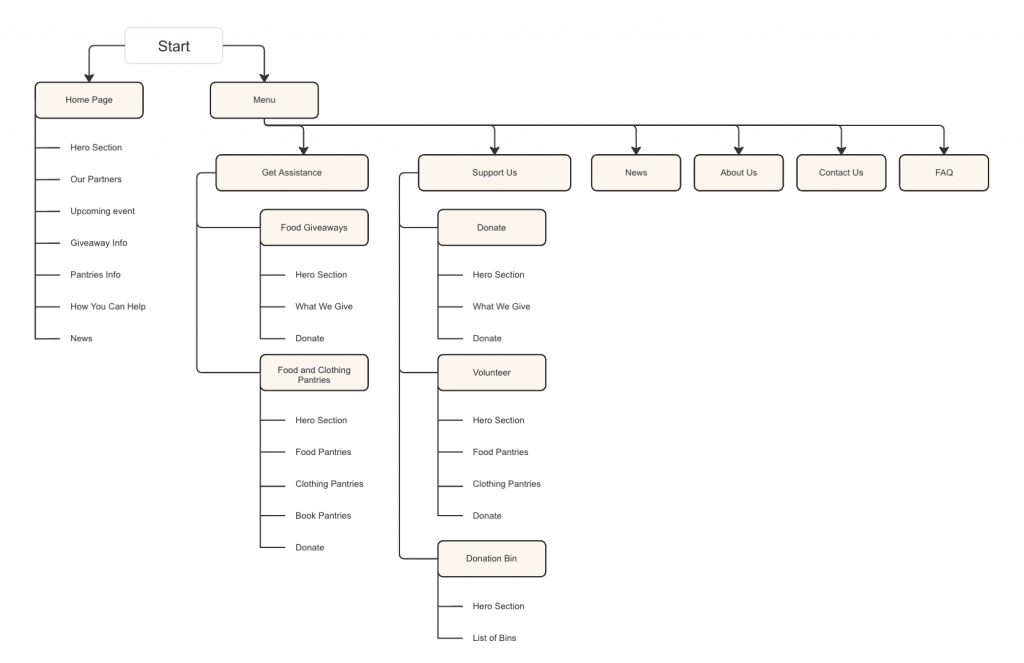
Paper wireframes
Quick sketches on paper to visualize ideas and layout structure before moving to digital tools.
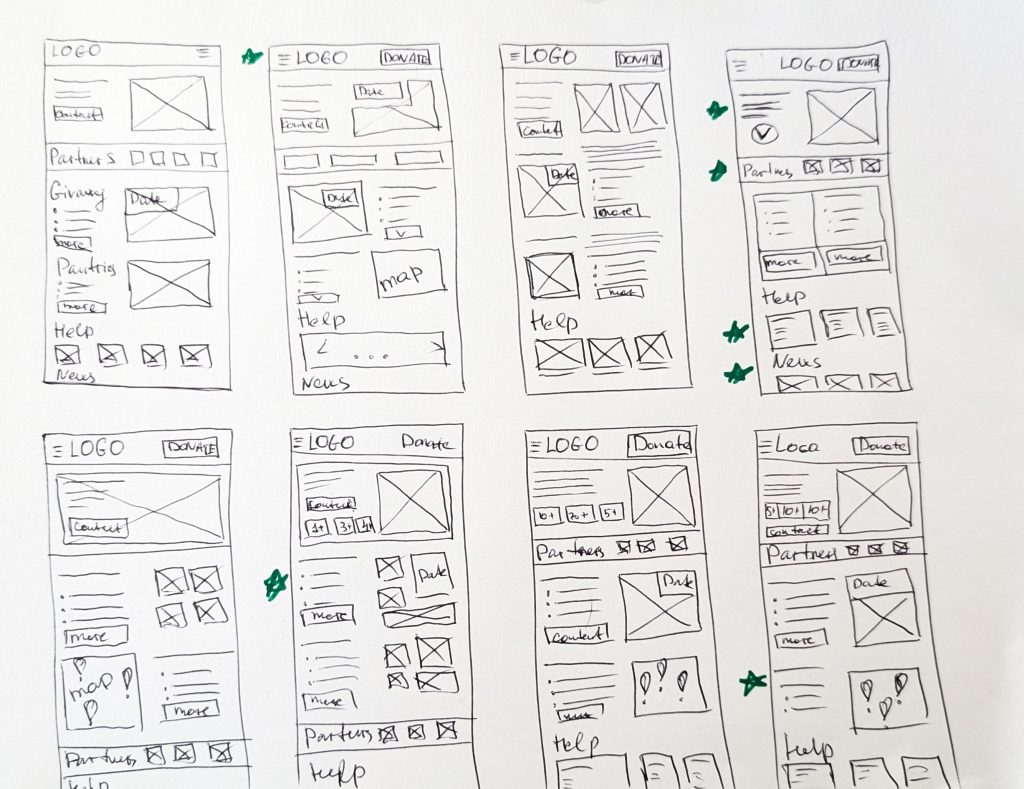
Digital wireframes
Detailed layouts created in design tools to define structure and functionality.
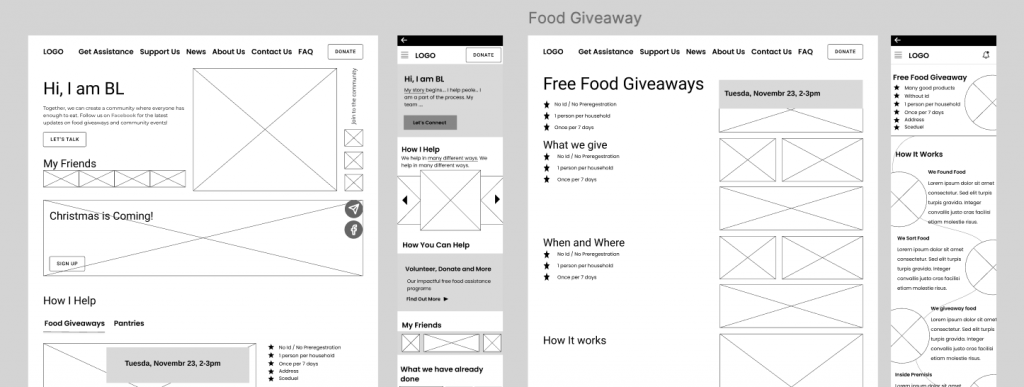
High-fidelity prototype
Realistic, interactive design mockups for user testing and client presentations.
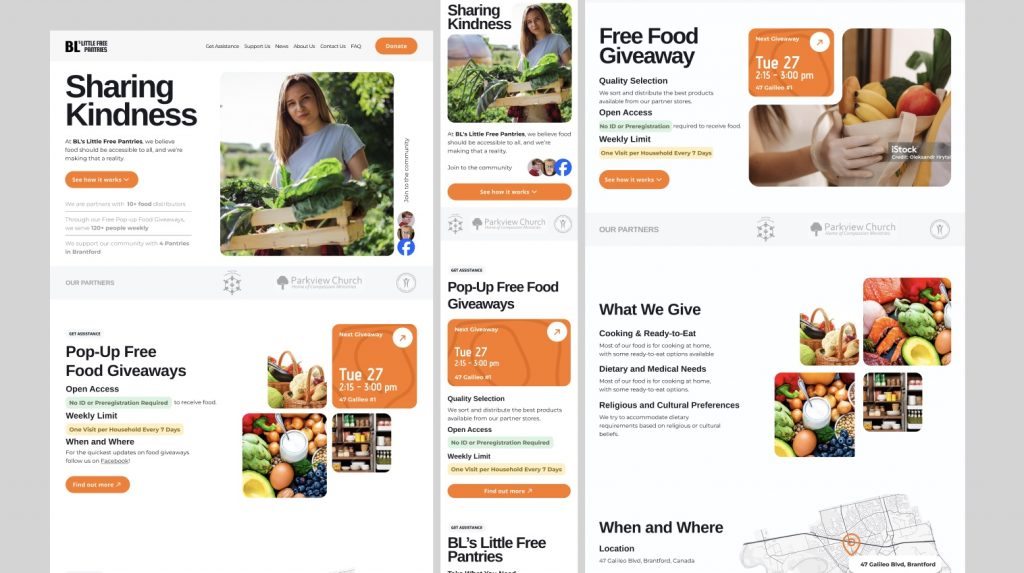
Impact
In December 2024, BL’s Little Free Pantries plans to launch a new website designed to streamline communication and improve access to information for food recipients, volunteers, and sponsors. The design and features are directly influenced by user research and insights gathered during the project. This implementation will serve as a central hub for community members to easily find food distribution schedules, volunteer opportunities, and sponsorship details.

